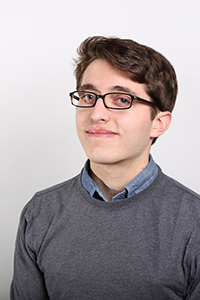Opinion: How young people get radicalized

Mark Oprea
Mark Oprea is a junior English major and columnist for the Daily Kent Stater.Contact him at [email protected].
Welcome to Chechnya: home of violent separatists and Islamic racialists. Since last week’s bombings in Boston, it is the apparent home of two of the most infamous Chechens in the United States. Among the endless stream of inquiries about the motives of the two suspects, U.S. officials are predominantly striving to comprehend the level of involvement from a Russian republic most of us have never heard of.Now, I am not claiming to have any grand insight into a matter deemed “really, really complicated” by one Washington Post writer; I merely just have the same amount of interest in understanding the incentive of the two behind this act of terrorism — and more about the country they are associated with.After the Soviet Union’s collapse in 1991, Chechnya, located in the southwest region of Russia near the Caspian Sea, initially welcomed independence. But in 1994, the Russian military, under the reign of Vladimir Putin, propelled the country back under a dominance that reaches back to the days of Czar Nicholas I.Then the nationalist movement began. The First Chechen War for independence kick-started a wave of staunch Russian dissenters. This war of secession drove many out of Chechnya in search of a safe haven against the perpetual violence — including the family of Tamelan and Dzhokar Tsarnaev. Families that evaded the first war managed to escape the rise of the Islamic nationalism and jihadi extremism that propagated the Second Chechen War in 1997.Today, “the majority of Chechens are trapped … prisoners in their own homeland,” a writer for The Atlantic said. An overwhelming percentage of this ethnic group has sought “refuge in democracies” to escape the atrocities occurring in their homeland.So if the Tsarnaev family claims to have evaded all portions of radical agenda, then should we Americans really blame the Chechen people themselves?Ramzan Kadyrov, current leader of Chechnya, immediately denied any links between the bombers and the country attached to them. “The brothers lived, studied and grew up in America,” Kadyrov said. “We don’t bear any responsibility.”This is coming from a man with a known allegiance to the Kremlin himself. Putin will undeniably use the association to Chechnya to bolster separatist opposition. The same tarnishing incited by the Russian leader will unfortunately pervade many Americans’ minds — all due to the actions of two.“But they haven’t seen anything,” says Chechen Ali Tepsurkaev, living in Needham, Mass. “They’ve [not] seen the screaming, they’ve [not] seen the blood.”He is right: The Tsarnaev brothers grew up Americanized; they evaded the oppression of which myriads of Chechens have succumbed. But there is something they were affected by – a radical ideology.
After reports of Tamelan Tsarnaev traveling overseas months before the attack, and his FBI investigation in 2011, evidence is arising that suggests he was under heavy extremist influence. It is strongly suggested that the same jihadi mentality that pervades terrorist organizations in Iraq and Afghanistan had seeped into the mind of a Boston graduate student and his younger brother. Therefore, we should not completely immerse ourselves in the politics of the two brothers’ native country, but more concern ourselves with how, as Georgetown professor Charles King said, “young people get radicalized” by such radical propaganda.
To answer the question “why?” we must first ask ourselves, “how?”


